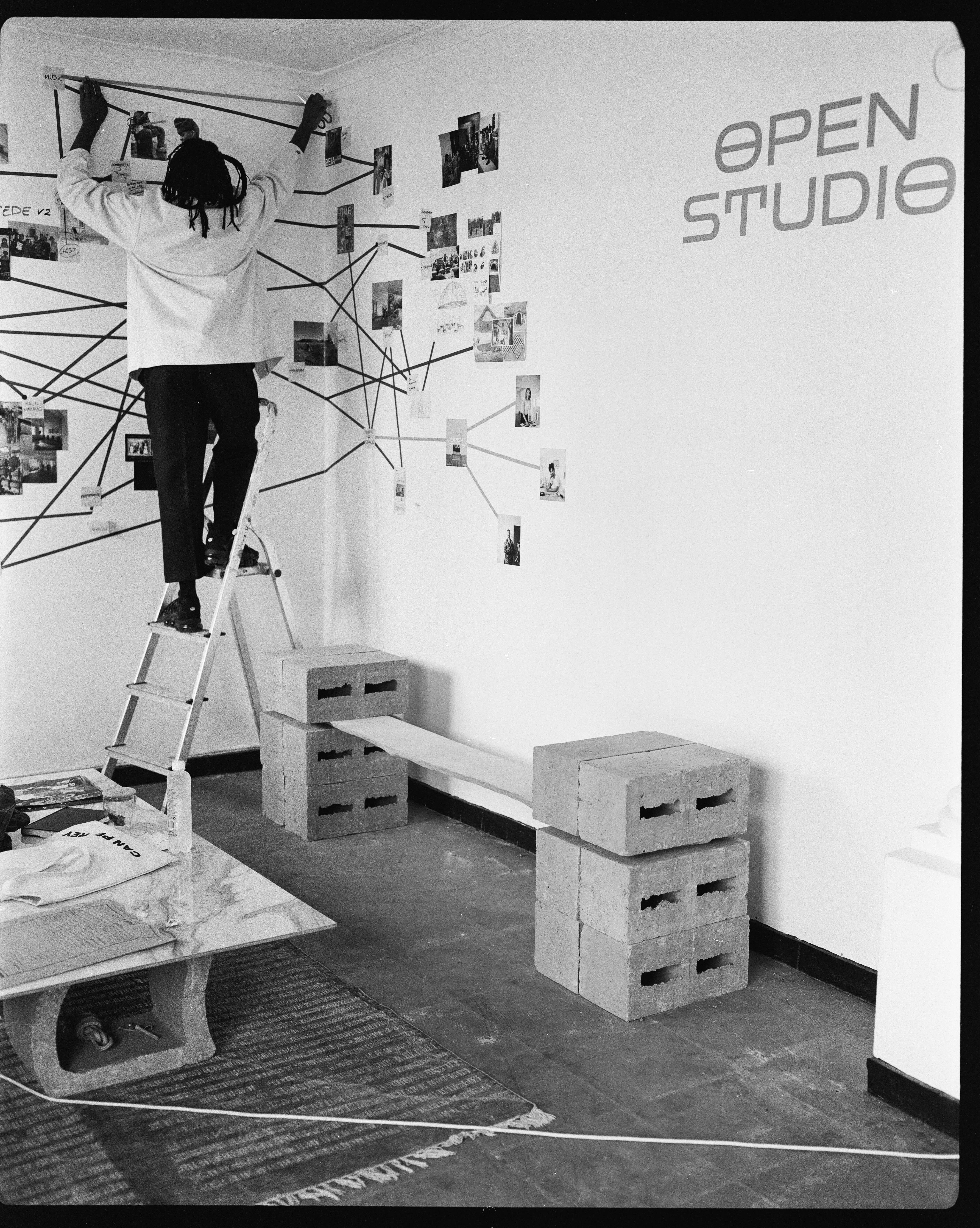RMB Latitudes Special Project: FEDE

Lebo Kekana, Latitudes Centre for the Arts, Shepstone Gardens, portrait by Earl Abrahams
----------
As one of the year’s special projects, FEDE Arthouse presents a sculptural configuration conceived by the gallery’s director and curator, Lebo Kekana. The project exists as the culmination of a long and playful process of experimentation with form, to investigate its capacity to impose utility upon space — explored in the context of the gallery.
FEDE is accustomed to creating spaces that feel like home, and through this presentation, Kekana proposes the idea of using exhibition infrastructure — as a medium of artistic expression with clearly defined functions — to facilitate intuitive engagement with exhibition-goers. This work is intended to hold space and moments of repose for exhibition goers, while also acting as manifestations of proposed ideologies, aesthetic values, and/or acting in support of other works presented in the space for observation. Informed by an understanding of art based on the ideologies of pre-colonial Africa, in which creative expression is tethered to the crafting of functional goods, this work exists between the disciplines defined (in the contemporary sense) as art and design.

Thus far, this study has taken shape through make-shift benches, as contributions by Kekana to various exhibitions — as either a curator or an artist — thus existing as a counterpoint for the different parts of his practice, through which he rejects the categorical limitations imposed by discipline. These benches take inspiration from the ingenuity and rigorous utility seen in the infrastructure of many local economies — such as food markets — with stands, tables, and chairs assembled from found objects; this idea of using processed goods in the same way one would use raw materials, showing adaptive reuse, and informed by scarcity (as a condition) to eliminate the superfluous; prioritising function above all else.
Through their placement in the exhibition space, the works explicitly emphasise a need for spaces of art consumption to be more accommodating and considerate of other ways of being that aren’t typically accounted for in the space. Direct inspiration is taken from the works crafted by African artisans, used in moments of gathering and ritual. While in the gallery place, the benches also implicitly break the no-touch barrier between “viewer” and “artwork”, imposed by the conditionality of the gallery space and it’s rules of engagement, along with one’s recognition of an object as a work of art through the lens of the European definition of “fine art”. This provocation toward the gallery space is underscored by what Kekana sees as the need to tether the utility of these spaces to the cultures, norms and behaviours of their context, and to facilitate an inclusive sense of comfort and engagement (for the sake of connection) within spaces of gathering. This extends to broader ideas related to the capacity for architecture — which can be thought of as another form of functional artistic practice — to facilitate these same conditions within public spaces.
 ‘Spirit Bench’, 2023, in collaboration with Jeanne Gaigher, courtesy FEDE
‘Spirit Bench’, 2023, in collaboration with Jeanne Gaigher, courtesy FEDE
For this latest iteration, Kekana joins forces with N I S H, a Cape Town based design studio which aims to bring an interdisciplinary approach to furniture design. Through contemporary, elegant and progressive designs that lean on skilful craftsmanship and the use of natural materials, the studio creates multifunctional pieces that adapt and form an essence unique to the environment and user that takes them on. Together, Kekana and N I S H have created a body of modular, inter-joining forms, that make room for play and intuitive use. The functional sculptures blend Nguni aesthetic values around material and form, with an understanding of modern techniques, as well as a refined and contemporary design style.
Further Reading In Articles
African Artist Directory
















